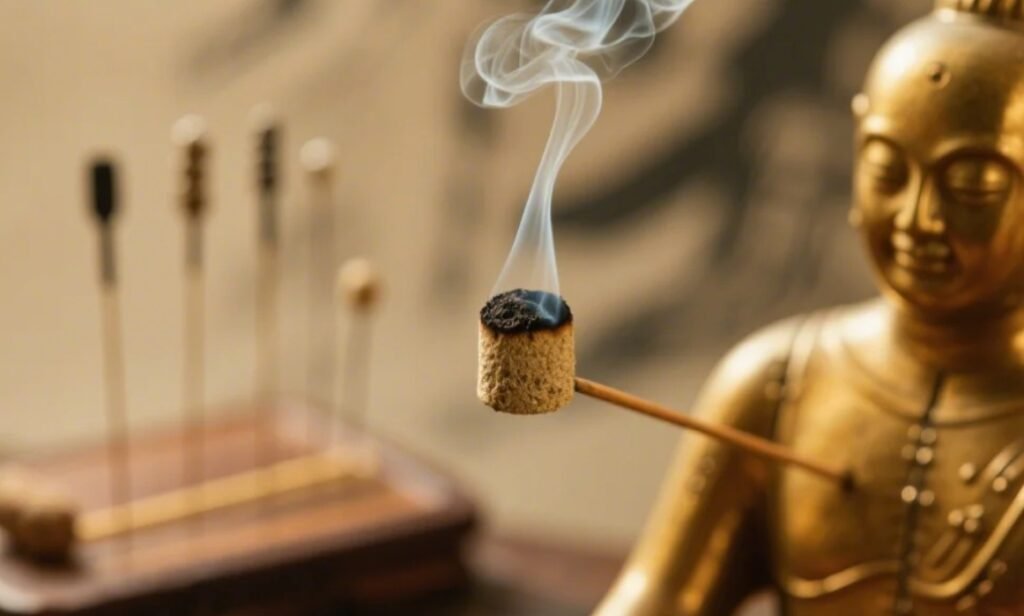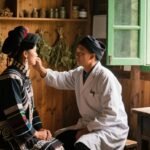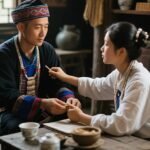Sprains (Yens hxena): A Miao Medicine Perspective on Diagnosis and Treatment
Overview
In Miao medicine, sprains are known as Yens hxena. The condition refers to damage in muscles or fascia due to direct or indirect external force, or prolonged physical overexertion. It is considered a major syndrome, further divided by affected regions: wrist, elbow, neck, shoulder, waist, knee, and ankle.
From the Traditional Chinese Medicine (TCM) perspective, sprains are classified as “muscle injuries” and often result from overexertion, accidental falls, or excessive torsion. These actions obstruct the flow of qi and blood, causing stagnation and pain.
Modern medicine defines sprains as soft tissue injuries of joints or limbs, without fractures, dislocations, or open wounds.
Disease Classification in Miao Medicine
Yens hxena is categorized into seven minor syndromes based on location: lumbar, wrist, elbow, neck, shoulder, knee, and ankle.
Causes
External trauma or environmental factors like wind, cold, and dampness may injure the muscles and fascia, leading to blood stasis and qi stagnation in the affected area.
Pathogenesis
External forces or climatic pathogens impair local circulation, resulting in blood and qi stagnation. Damage to muscle, fascia, and blood vessels causes redness, swelling, heat, and pain. In TCM, qi and blood are fundamental to life: “Qi commands blood; blood nourishes qi.” When qi flows smoothly, blood follows. When qi stagnates, blood congeals, leading to pathological changes.
Key Diagnostic Criteria
1. Clinical Diagnosis
Symptoms: swelling, pain, bruising, warmth to the touch, restricted movement, and impaired daily functioning.
History: recent trauma or prolonged physical strain.
2. Imaging
CT scans may reveal joint or soft tissue injury.
Differential Diagnosis: Bone Fracture
Bone fracture (Cangt lod) results from severe impact, falls, compression, or long-term wear, leading to full or partial breakage of bone structure. It differs from sprains in that the pain is more severe, often accompanied by deformity, crepitus, or abnormal movement. X-ray or CT imaging can confirm the diagnosis.
Syndrome Classification and Treatment
1. Wrist Sprain
Symptoms: Redness, swelling, pain, limited motion, bruising, and weakness.
Treatment Principles: Relax sinews and activate blood, regulate qi and alleviate pain.
Herbal Formula:
Panax notoginseng + tusanqi – 20g
Lycopus lucidus + zelan – 30g
Sanguisorba officinalis + jianxuefei – 30g
Boil herbs in water for internal use; apply herbal residue topically.
2. Neck Sprain
Symptoms: Sudden neck torsion causing pain on one side, limited motion, muscle stiffness, and tenderness.
Treatment Principles: Relax sinews, activate blood, regulate qi, and relieve pain.
Herbal Formula:
Curcuma longa + jianghuang – 10g
Morus alba twig + sangzhi – 10g
Paeonia veitchii + chishao – 15g
Panax notoginseng + tusanqi – 15g
Silicon nitride tile (mineral medicine) + sikuaiwa – 10g

Boil for oral use.
3. Elbow Sprain
Symptoms: Local swelling, bruising, limited extension or flexion, and tenderness around the elbow.
Treatment Principles: Unblock meridians, relieve pain, dissipate swelling.
Early-Stage Formula:
Schefflera arboricola + shengtieluo – 15g
Carthamus tinctorius + honghua – 10g
Paeonia veitchii + chishao – 15g
Lycopus lucidus + zelan – 20g
Late-Stage Formula:
Centipeda minima + yuanbaocao – 15g
Lyonia ovalifolia + daxiantaocao – 15g
Panax notoginseng + shuishanqi – 15g
All herbs should be decocted for internal administration.
4. Shoulder Sprain
Symptoms: Fascia or muscle tears due to excessive rotation; pain, swelling, and restricted shoulder movement.
Treatment Principles: Relax meridians, activate blood, relieve swelling and pain.
Herbal Formula:
Curcuma longa + jianghuang – 8g
Prunus persica seed + taoren – 10g
Morus alba twig + sangzhi – 10g
Sargentodoxa cuneata + daxueteng – 15g
Lycopus lucidus + zelan – 15g
Boil for oral use.
5. Lumbar Sprain
Symptoms: Pain, soreness, restricted movement in the lumbar region.
Treatment Principles: Unblock meridians, regulate qi, relieve pain.
Herbal Formula:
Cyperus rotundus + xiangfu – 12g
Lycopus lucidus + zelan – 15g
Citrus aurantium + zhike – 10g
Prunus persica seed + taoren – 15g
Schefflera arboricola + shengtieluo – 15g
Boil for internal use.
6. Knee Sprain
Symptoms: Injury to ligaments or muscles leads to swelling, pain, limping, and limited motion.
Treatment Principles: Promote blood circulation, remove stasis, regulate qi, relieve pain.
Herbal Formula:
Panax notoginseng + tusanqi – 15g
Sanguisorba officinalis + jianxuefei – 20g
Cynanchum paniculatum + xuchangqing – 12g
Cyperus rotundus + xiangfu – 10g
Boil for oral use.
7. Ankle Sprain
Symptoms: Ankle trauma, pain, swelling, bruising, and walking difficulty.
Treatment Principles: Relax sinews, activate blood, regulate qi, relieve pain.
Herbal Formula:
Panax notoginseng + sanqi – 20g
Lycopus lucidus + zelan – 30g
Sanguisorba officinalis + jianxuefei – 30g
Decoction for oral use; apply the residue topically on the injured site.
Preventive Measures
Avoid sudden force or uncoordinated heavy lifting.
Strengthen weak muscle groups through focused training.
Protect the body from cold and damp; avoid overfatigue.
Refrain from long hours in strained or fixed postures.
Commentary
In Miao medicine, Yens hxena is attributed to external force or overexertion damaging tendons and joints. Common symptoms include localized pain, swelling, and restricted mobility. Treatment strategies focus on relaxing muscles, activating blood circulation, promoting qi flow, and resolving blood stasis. Long-term recovery also requires strengthening muscle coordination and preventing re-injury.


Leave a Reply